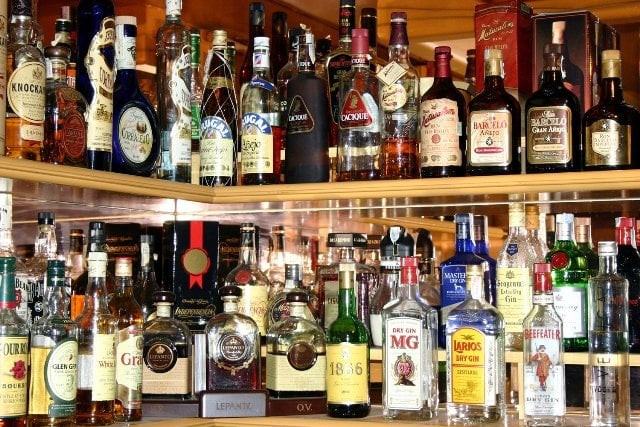Prohibition: ‘Don’t issue liquor permits to Christians’
Petitioners say law allowing Christians liquor permits should be abolished.

The Christian licence holders mostly sold liquor to Muslims but brought a bad name to Christianity, says petitioners. PHOTO: FILE
Petitioners Naseem Masih and Aslam Pervaiz Sahotra said that like Muslims, Christians were not allowed to use intoxicants. The view that Christians used liquor as part of religious ceremonies was a blight on Christianity, they said.
The Christian licence holders mostly sold liquor to Muslims but brought a bad name to Christianity, they said. The sale of liquor increases around Islamic festivals, they said, a clear indication that these licence holders supply it to Muslims.
The petitioners submitted that the Prohibition (Enforcement of Hadd) Order IV of 1979 prohibited the manufacturing, possession, sale, export and transport of all kinds of intoxicants, the violation of which would entail punishment. According to Article-4 of the Order, the prohibition would not apply to non-Muslim foreigners or non-Muslim citizens. They could posses a reasonable quantity of intoxicating liquor for the purpose of using it as a part of religious ceremonies, the Order stated.
In view the prohibition order, the Punjab government had introduced the Punjab Prohibition (Enforcement of Hadd) Rules 1979, under which the Excise and Taxation Department’s director general could issue licences to non-Muslims.
The petitioners said that while it appeared that Christians who were issued licences only sold liquor to members of their own community that in fact, was not the case.
The petitioners submitted that according to the Order, licences should only be issued to persons representing an institution, not individuals.
They said all holy books forbid the use of intoxicants. “When holy books do not allow their followers to use liquor, how can one person allow another its use by quoting law?” asked the petitioners.
They said the Excise and Taxation Department was using the order for its own nefarious purposes. It’s policy to issue licences to Christians was not declared illegal and unlawful, the petitioners said, many Christians would suffer irreparable loss and injury.
They said the issuance of licences to individuals not only promoted social degradation but also went against the Holy Bible’s teachings. They prayed the court to declare the provision of Article-17 of the Prohibition (Enforcement of Hadd) Order 4 of 1979 and Rule-12 of the Punjab Prohibition (Enforcement of Hadd) Rules 1979 illegal.
Published in The Express Tribune, June 3rd, 2013.



















COMMENTS
Comments are moderated and generally will be posted if they are on-topic and not abusive.
For more information, please see our Comments FAQ